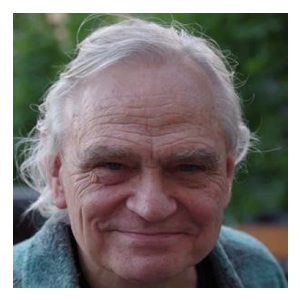The Baby is in the Shadow: Why Study Prenatal and Perinatal Patterns?
Working with families and babies who have had overwhelming experiences requires a certain skill base. I have been working in the prenatal and perinatal realm for over 15 years, over 20 years as a body worker, and over 25 in maternal and child health. In the last 14 years, advances in the fields of interpersonal biology, epigenetics, fetal origins, trauma resolution, affect regulation, neuroscience, and attachment have created more acceptance that babies have experiences in utero, during birth, and postpartum (neonatal). My work is about healing moms, babies, and adults with early trauma; prenatal and perinatal therapeutic approaches focus on giving babies the best possible start.
Body Wise: Community Based Centers
I had a dream. I wanted to create a shop-fronted organisation on my local High Street to offer drop-in counselling and psychotherapy services. It wouldn't be a bad location; not the poorest nor the poshest area of town, but with a strong community focus.
Biodynamic Psychotherapy: An Overview
She says, "If only I could say everything I want", and tells us that lately she has begun writing a diary, despite her inner struggles. When she talks about her writing she diverges and tells how sometimes a style of writing can change and turn the most secret thoughts in her diary into what she calls "real writing", and gradually the energy in the room changes and we all feel that we are marching "into the real" with her. From the universal pain that pounds the room sprout new buds, her pale face becomes pink once again; her hands that previously froze over her mouth awaken and begin to move seemingly of their own accord in excitement, in order to add additional dimensions to the pouring words. Her body straightens up and starts swaying to the rhythm of her words, and she no longer needs support for her back, which was previously aching, and it seems that the strength of her vitality serves her and is like an internal support invisible to the naked eye, enabling her to sit straight and at the same to develop new dimensions. Gottfried, my co-facilitator for the group "Attending to the Silence" says, "Look how the energy in the room has changed". And this new recognition in transformation beyond the old standpoints is molded; another option beyond the painful dynamics of victim-aggressor-collaborator.
How can we evaluate the subjective and objective aspects of effectiveness in the therapeutic...
n this article, I propose that there are fundamental limitations to current scientific mainstream methods of writing about therapeutic processes that in fact hinder our ability to both write about our therapeutic process and to learn from other clinicians’ and researchers’ writings.
Embodied Compassion: An Interview with Michael Shea, PHD
Michael Shea, PhD, educator, author, and Biodynamic Craniosacral Therapist explains that for healing to happen both the client and the practitioner "symbolically return to the undifferentiated wholeness of the original fluid body in the early embryo while staying in present time." Through embodiment practices, Shea says, we have the capacity to maintain our interconnectedness throughout our lives when we connect with our fluid nature, our blood, and our heart.
Addressing Sexuality in Bioenergetic Therapy
Embodied sexuality can provide some of the best of what life has to offer including feelings of pleasure, connection and satisfaction. For many people, however, sexuality has led to some of life’s worst experiences—violations, broken connections, and traumas that lead to feelings of shame and guilt. Culturally, we have confused sexuality with how our bodies look rather than how we feel. Helping people restore healthy sexuality, defined as a specific state of vitality in the body, is a central focus of Bioenergetic Therapy.
The Treasure and the Tragedy of Wilhelm Reich
Whether psychology’s debt to Dr. Wilhelm Reich is acknowledged or not, many of our present day systems of psychotherapy rest squarely on his shoulders. Though now dead, he remains impressively alive. And in the context of what a fearful society can do to its greatest innovators, I believe his story, and in effect my story of our relationship, needs to be told far and wide.
The Handbook of Body Psychotherapy and Somatic Psychology: A Day Long Celebration
Nancy Eichhorn offers her experience listening to six speakers’ viewpoints at the day long celebration honoring The Handbook of Body Psychotherapy and Somatic Psychology in a four-part blog posting with some longer writings and some short eclipses of the content shared. As well, she hopes to reflect their collective themes that resonated with William Cornell’s call for institutions to train ‘embodied’ psychotherapists rather than body psychotherapists—a play on the aliveness of the adjective rather than the solid structural nature of a noun.
Babies Mental Health Matters
When we hear about a person’s mental health, it’s often in the context of a problem — a colleague is struggling to handle stress at work, a friend’s child is having behavioral problems at school, or a family member has received a diagnosis. And almost always, these discussions are limited to older children and adults. So it begs the questions: when does mental health begin? Do babies have mental health?
The Handbook of Body Psychotherapy and Somatic Psychology: A Day Long Celebration
Medical trauma in patients and providers: interpersonal neurobiology and the autonomic nervous system with Jacqueline Carleton, PhD














